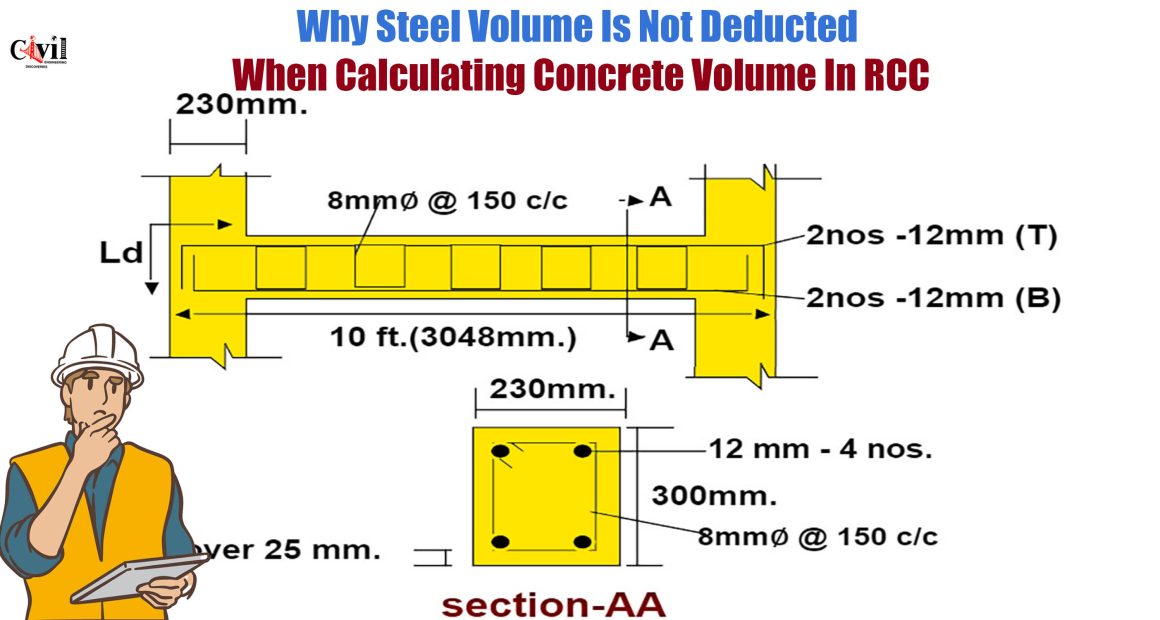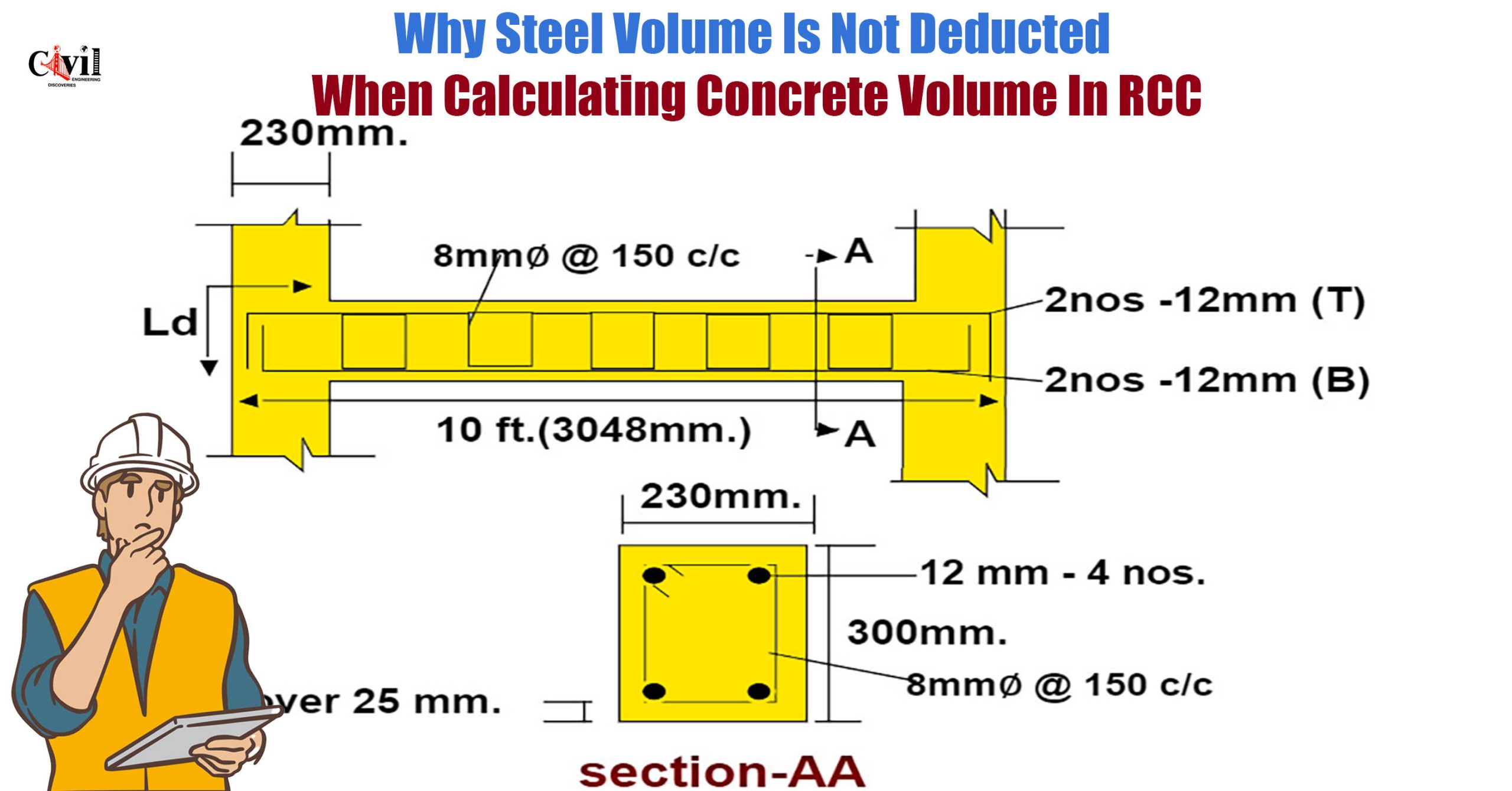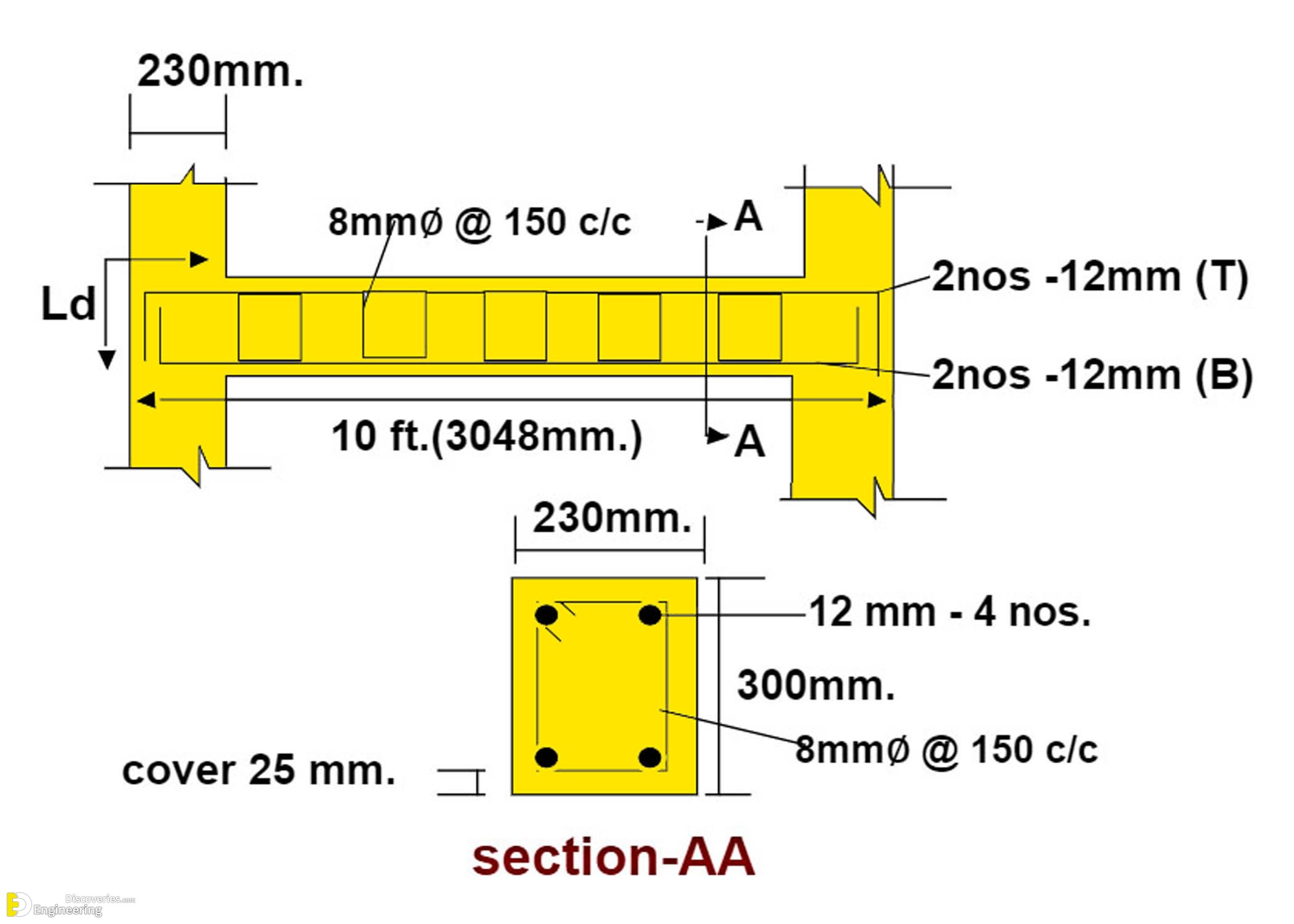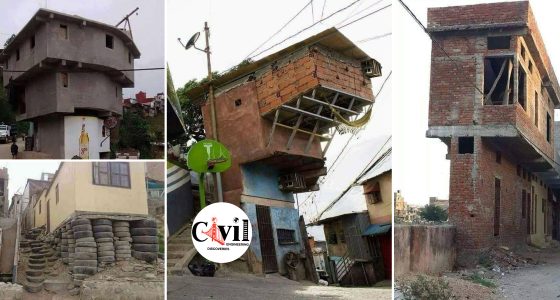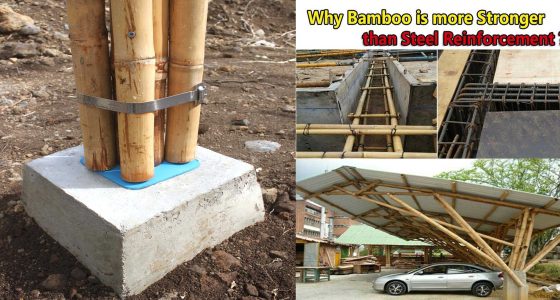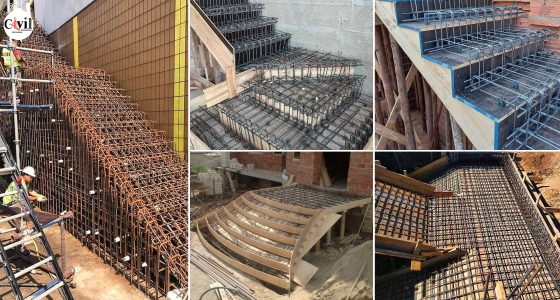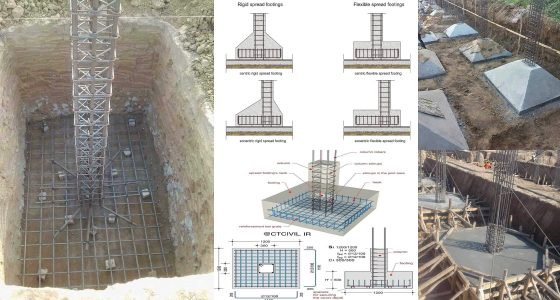In Reinforced Cement Concrete (RCC), steel reinforcement is essential. Yet, its volume is not deducted when calculating the total concrete volume. Why?
Steel accounts for only 1% to 3% of the total concrete volume in typical RCC structures. This small percentage is considered negligible during volume estimations.
Let’s break it down using a simple beam example.
Concrete Volume Calculation in RCC Beam
Formula:
Volume of Concrete = Length × Breadth × Height
Example:
Let’s take a beam with the following dimensions:
Clear length: 3.048 m
Two supports: 0.230 m each
Width (B): 0.23 m
Height (H): 0.3 m
Concrete Volume:
= (3.048 m – 2 × 0.230 m) × 0.23 m × 0.3 m
= 2.588 m × 0.23 m × 0.3 m
= 0.178 m³
Steel Volume Calculation in the Beam
Main Bars:
4 bars
Diameter = 12 mm = 0.012 m
Volume of Main Bars:
= 4 × 0.7855 × d² × L
= 4 × 0.7855 × (0.012²) × 3.048
= 0.00137 m³
Lateral Ties:
19 ties
Diameter = assumed to be the same
Length = 1.124 m
Volume of Ties:
= 19 × 0.7855 × d² × L
= 19 × 0.7855 × (0.012²) × 1.124
= 0.001 m³
Total Steel Volume:
= 0.00137 + 0.001
= 0.00237 m³
Steel Volume Percentage in RCC
To calculate the percentage of steel in the total RCC volume:
= (Steel Volume ÷ Concrete Volume) × 100
= (0.00237 ÷ 0.178) × 100
= 1.33%
Concrete occupies 98.67%, while steel occupies only 1.33% of the total volume.
Why Steel Volume Is Ignored in Concrete Calculation
Steel’s contribution is minimal. When casting RCC, concrete wastage usually exceeds the volume of steel. This makes it practical to ignore steel volume in calculations.
Instead of making complex adjustments for a small steel portion, builders accept this margin as part of overall wastage.
Concrete Wastage During Casting – Key Reasons
1. Bulging of Formwork
During compaction using vibrators, formwork may slightly expand. This adds volume, and more concrete fills the space.
2. Leveling Challenges
Achieving a perfect top level of concrete is hard. Workers often pour a bit more to ensure coverage and avoid underfilling.
3. Spillage During Pouring
Concrete often spills over the sides of formwork or onto the ground. This is especially common when pouring from height or using trolleys.
4. Equipment Adhesion Loss
Concrete sticks to mixers, trolleys, vibrators, and tools. The leftover material adds up and contributes to the total wastage.
Click Here To See How To Calculate The Total Load Over The RCC Beam
